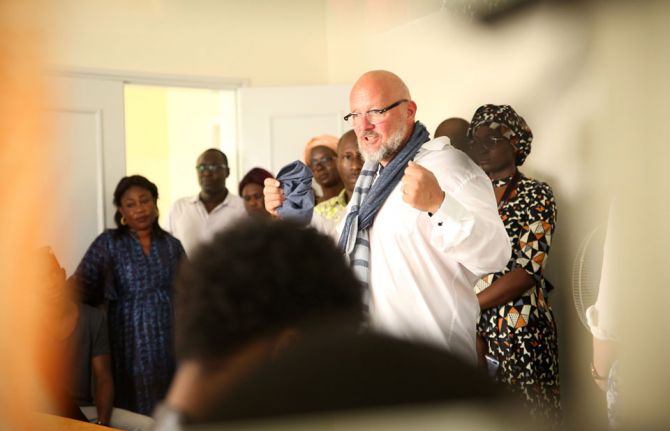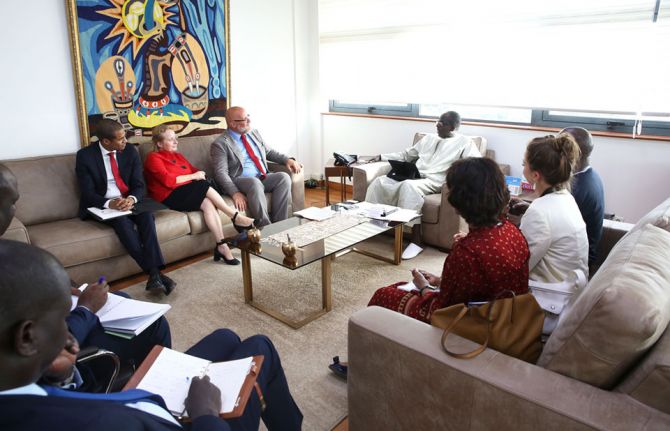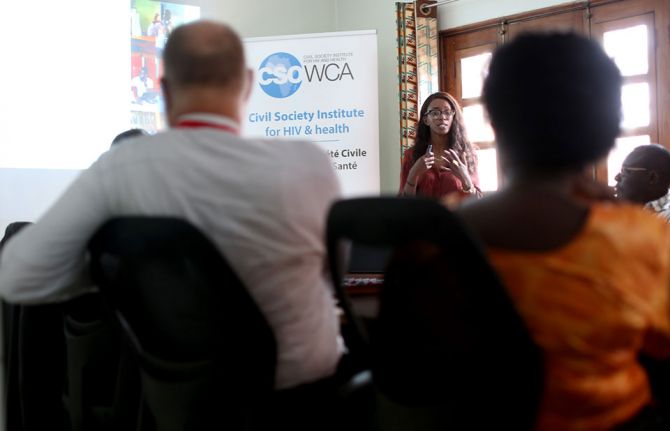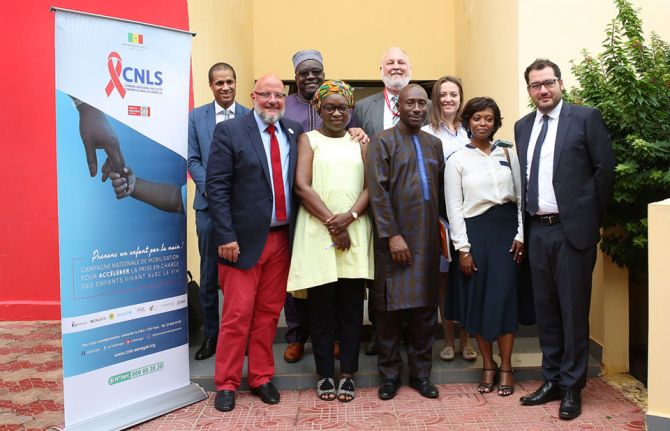





Feature Story
UNAIDS and Luxembourg―working together in western and central Africa
09 October 2019
09 October 2019 09 October 2019Western and central Africa continues to lag behind the rest of Africa in preventing and treating HIV, leaving millions of people vulnerable to HIV infection and 2.4 million people living with HIV without treatment. Following calls to action made at the 2016 United Nations High-Level Meeting on Ending AIDS and the July 2016 African Union summit, UNAIDS and partners launched a plan to accelerate efforts to stop new HIV infections and ensure that everyone in the region has access to life-saving treatment.
Although resources available in western and central Africa to respond to HIV increased by 65% between 2006 and 2016, reaching an estimated US$ 2.1 billion, most countries remain highly dependent on donors. However, international funding is declining and current investment levels are far lower than what is actually needed to make a sustainable change.
Luxembourg is one country that remains committed to investing in western and central Africa. Marc Angel, Chair of the Foreign Affairs and Development Committee in the Luxembourg Parliament and UNAIDS Champion for the 90–90–90 Targets, joined UNAIDS on a recent visit to Senegal to see how Luxembourg’s contribution to UNAIDS for the acceleration of the AIDS response in western and central Africa was helping to make a difference.
Supported by funding from Luxembourg, UNAIDS and partners have established the innovative Civil Society Institute for HIV and Health in West and Central Africa. The institute acts as a coordinating mechanism for around 80 nongovernmental organizations working in the interests of people affected by HIV in 20 countries across western and central Africa.
One such group is CEPIAD, the first centre for harm reduction for people who inject drugs in western Africa. The medical staff and social assistants are pioneers in the region, treating people who use drugs with a public health approach rather than judgement. In Mbour, at the treatment centre for key populations, Mr Angel heard from people who had injected drugs in the past, who shared their personal stories of how the centre had helped them to reintegrate with their families and society.
“Only by including key populations can the 90–90–90 targets be reached,” said Mr Angel. “Senegal’s public and civil society actors have to continue working hand in hand towards this objective. For Luxembourg’s development cooperation, the human rights dimension in the fight against AIDS and in global health is key. Together with UNAIDS we need to ensure that voices from communities are being heard, working all over the country, in particular with vulnerable populations, including children.”
Mr Angel also visited the paediatric treatment ward of the Albert Royer Hospital, where he met young people living with HIV. They shared their experiences of treatment for HIV, which is allowing them to live normal lives. He noted the progress made in stopping new HIV infections among children in Senegal and the important work done around sexual and reproductive health and HIV to prevent new HIV infections among adolescents.
During meetings with the Minister of Health and Social Action of Senegal, Abdoulaye Diouf Sarr, and the Secretary-General of Senegal’s National AIDS Committee, Safiatou Thiam, Mr Angel praised Senegal for decreasing the national HIV prevalence.
However, he also highlighted areas of concern, including the high HIV prevalence among key populations, emphasizing that access to treatment for key populations was instrumental to ending AIDS by 2030. He also advocated for an increase in national resources to respond effectively and sustainably to HIV in Senegal.



